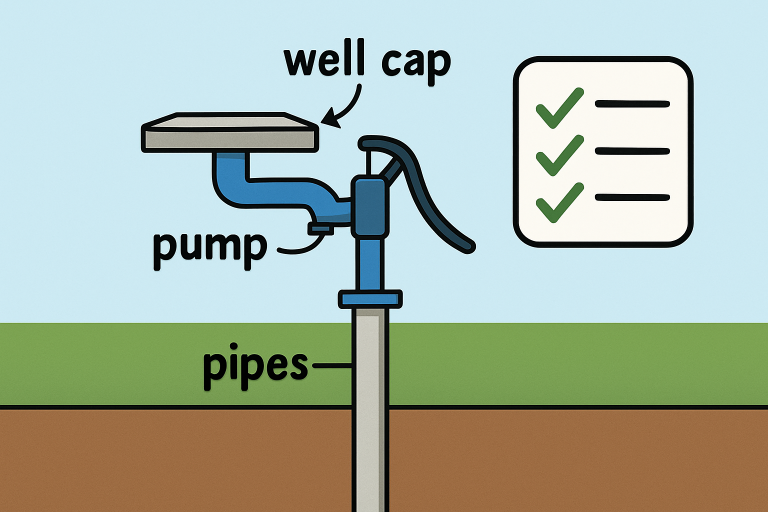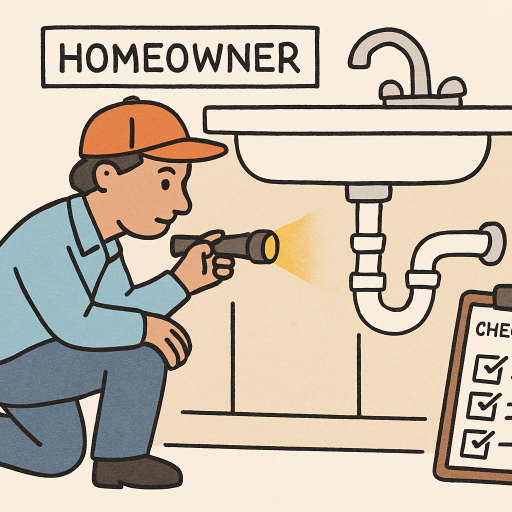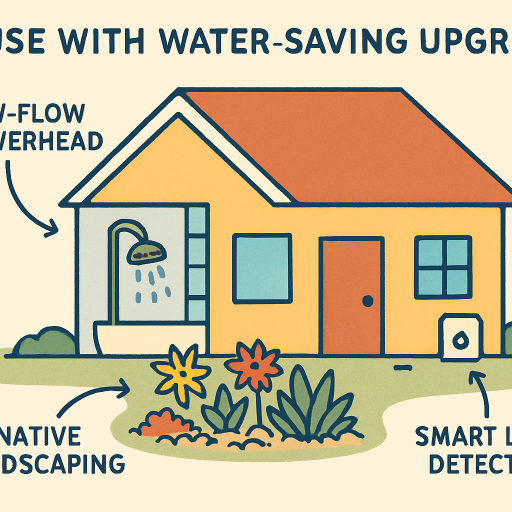A reliable water well system is crucial for clean, safe water access for residential, agricultural, and commercial use. However, long-term performance depends on proper upkeep, including routine inspections, water quality testing, and timely pump and component servicing. Smart strategies for water well maintenance focus on proactive steps, extending system lifespan, safeguarding water quality, and avoiding costly disruptions. Adopting these practices makes maintaining a water well manageable, supporting sustainability and dependable performance year after year.
Table of Contents
- 1 Why Regular Well Maintenance Matters
- 2 Common Warning Signs in Water Wells
- 3 Key Maintenance Tasks for Well Owners
- 4 Seasonal Checks for Maximum Efficiency
- 5 How Water Quality Testing Gives Peace of Mind
- 6 Keeping Up with Regulations and Best Practices
- 7 When to Call a Water Well Professional
- 8 Practical Tips for Long-Lasting Wells
- 9 Conclusion
Why Regular Well Maintenance Matters
Reliable access to clean, safe water is crucial for every household that relies on a private well. Regular maintenance safeguards health and helps avoid disruptive repairs and unexpected expenses. By partnering with experts offering water testing & treatment services in Ohio, well owners can ensure their water systems are correctly cared for, reducing the likelihood of waterborne illness and prolonging the lifespan of well equipment.
Effective maintenance protects vital groundwater resources and supports the environment by preventing contamination. Simple, proactive steps like regular inspections and timely upgrades shield your home from costly emergencies while keeping your water supply dependable throughout the year. Routine attention is the foundation of water security for families dependent on private wells.
Common Warning Signs in Water Wells
Every well owner should familiarize themselves with the telltale signs of problems. Early symptoms often go unnoticed but can escalate quickly if left unaddressed. Look out for sudden drops or fluctuations in water pressure, unusual odors such as a rotten egg smell, metallic or foul-tasting water, or visible discoloration after rainstorms. These issues may indicate bacterial contamination, corrosion in the well casing, pump failure, or a breach allowing surface water to seep in. Recognizing these alerts promptly empowers you to take swift action and prevent more complex problems.
Key Maintenance Tasks for Well Owners
To maintain the purity and safety of your drinking water, it’s essential to clear debris, inspect pump systems, wiring, and electrical components annually, schedule annual water quality tests for bacteria, nitrates, and other pollutants, and maintain a detailed maintenance log. This ensures the system’s longevity and helps prevent mechanical failures and potential risks before they escalate.
Seasonal Checks for Maximum Efficiency
Each season brings different threats to well performance and water safety. Before winter, insulate any exposed piping to prevent freezing and inspect the well cap for signs of damage. Check for floodwater pooling near the well in spring, as this can increase contamination risk. During summer, examine the pressure tank, test the pump’s performance, and ensure outdoor wellheads remain accessible and protected. Fall is ideal for a comprehensive system review, ensuring everything is secure before colder weather returns. Tailoring checks to the season keeps your well running efficiently and reliably year-round.

How Water Quality Testing Gives Peace of Mind
Water quality can shift because of natural events like heavy rainfall or prolonged drought, as well as local human activity such as agriculture or new construction. Regular water testing is crucial for detecting bacterial, chemical, or mineral contaminants early, ensuring that any issues can be addressed before they threaten health. Agencies like the EPA suggest that well owners test for bacteria, nitrates, pH, and possible pesticides at least once a year or after known contamination events. Timely testing delivers confidence that your water is always safe and helps you make informed decisions about filtration and treatment.
Keeping Up with Regulations and Best Practices
Staying current with state and federal regulations is critical for well owners. Requirements vary widely by location, affecting mandatory testing, setback distances, allowable construction materials, and reporting duties. Local health departments and environmental agencies usually offer updated guidance to ensure your system complies with all legal and safety standards. Adopting industry best practices, such as annual professional inspections and following precautionary maintenance routines, contributes to your household’s safety and the wider community’s health.
When to Call a Water Well Professional
Water wells can experience persistent drops in pressure, corrosion, contamination, component failure, and failure to pass water quality tests. While well owners can manage routine maintenance, major repairs or complex issues should be left to trained specialists. These professionals have diagnostic tools and groundwater expertise to identify and implement solutions while adhering to safety standards.
Practical Tips for Long-Lasting Wells
To ensure the longevity and reliability of your well, it’s essential to maintain a buffer zone, address leaks promptly, clearly mark your well location for safety, and review your well’s performance and maintenance history every five years. These habits will prevent water waste and pressure issues, ensure uninterrupted access to clean water, and prevent accidental damage during landscaping or construction projects.
Conclusion
Caring for a private well is about protecting your household’s health and ensuring reliable access to clean water. Regular inspections, seasonal upkeep, and water testing can prevent costly emergencies. Professional support adds security, helping with compliance and best practices. Routine maintenance is an investment in long-term water security, environmental health, and peace of mind, ensuring your well remains dependable for years.

